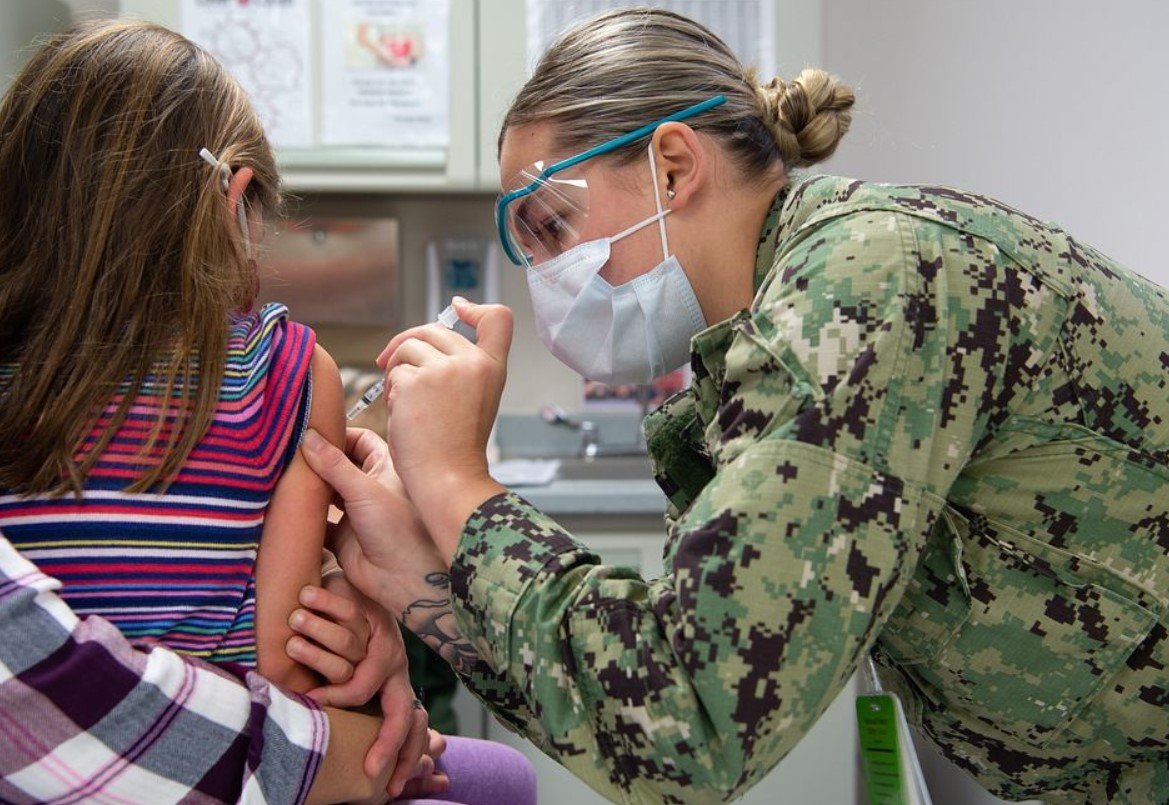A new study has found that a single dose of the typhoid vaccine developed by Bharat Biotech, an Indian biotechnology company, provides lasting protection against typhoid fever in children aged nine months to 12 years. The study, conducted in Malawi, a typhoid-endemic country in Africa, showed that the vaccine had an efficacy of 78.3% after more than four years of follow-up.

Typhoid Fever: A Global Health Challenge
Typhoid fever is a serious bacterial infection caused by Salmonella Typhi, which spreads through contaminated food and water. The disease affects about 9.2 million people and causes about 1.1 lakh deaths every year, mostly in low- and middle-income countries. The disease can cause high fever, headache, abdominal pain, diarrhea, and complications such as intestinal perforation and bleeding.
The main strategy to prevent and control typhoid fever is to improve sanitation and hygiene, and to provide safe drinking water. However, these measures are often inadequate or inaccessible in many settings, especially in urban slums and rural areas. Therefore, vaccination is also an important tool to reduce the burden of typhoid fever, especially in high-risk populations.
Bharat Biotech’s Typhoid Vaccine: A Breakthrough Innovation
Bharat Biotech, based in Hyderabad, has developed a typhoid vaccine called Typbar-TCV, which is a conjugate vaccine that combines the typhoid antigen with a carrier protein to enhance the immune response and the duration of protection. The vaccine is the first of its kind to be approved by the World Health Organization (WHO) for use in children aged six months and above.
The vaccine has several advantages over the existing typhoid vaccines, such as longer-lasting immunity, fewer doses, and better protection against the strains of typhoid that are resistant to antibiotics. The vaccine is also affordable and easy to administer, making it suitable for mass immunization campaigns in resource-limited settings.
The vaccine has been used in several countries, such as Pakistan, Nepal, Zimbabwe, and Liberia, to prevent and contain typhoid outbreaks. The vaccine has also been included in the national immunization programs of some countries, such as Ghana, Philippines, and Zambia.
The Study: A Landmark Trial in Malawi
The study, published in The Lancet, was a phase 3 trial that evaluated the long-term efficacy of the typhoid vaccine in children aged nine months to 12 years in Malawi, a country that has a high incidence of typhoid fever. The trial was conducted by a team of researchers from the University of Maryland School of Medicine, the University of Liverpool, the University of Oxford, the University of Malawi, and Bharat Biotech.
The trial involved 28,130 children, who were randomly assigned to receive either the typhoid vaccine or a meningitis vaccine as a control. The children were followed up for more than four years, and the cases of typhoid fever were confirmed by blood culture.
The results showed that the typhoid vaccine was highly effective in preventing typhoid fever in children of all age groups. The vaccine prevented one case of typhoid fever for every 163 children vaccinated. The vaccine had an efficacy of 78.3% after more than four years of follow-up, which was higher than the previous estimates of 55.6% after two years and 71.8% after three years.
The study also showed that the vaccine was safe and well-tolerated, with no serious adverse events related to the vaccine. The study is the first to demonstrate the long-term efficacy of a single dose of the typhoid vaccine in a typhoid-endemic setting in children aged nine months to 12 years.
The Implications: A Potential Game-changer for Typhoid Control
The study has important implications for the global efforts to prevent and control typhoid fever, especially in the regions where the disease is endemic and the access to safe water and sanitation is limited. The study provides strong evidence that the typhoid vaccine can provide lasting protection against typhoid fever in children, who are the most vulnerable and the most affected by the disease.
The study also supports the WHO’s recommendation to introduce the typhoid vaccine in the routine immunization programs of the countries where typhoid is a public health problem. The study also suggests that the typhoid vaccine can be used in combination with other interventions, such as improving water quality, sanitation, and hygiene, to achieve a greater impact on reducing the burden of typhoid fever.
The study also highlights the role of innovation and collaboration in developing and delivering effective and affordable vaccines for the neglected diseases that affect the poor and the marginalized. The study showcases the success of Bharat Biotech, an Indian company, in developing a world-class vaccine that meets the global standards and the local needs. The study also acknowledges the contribution of the researchers, the funders, the regulators, and the communities, who participated and supported the trial.
The study concludes that the typhoid vaccine is a potential game-changer for typhoid control, and calls for its wider and faster adoption and implementation in the countries where typhoid is endemic.



















